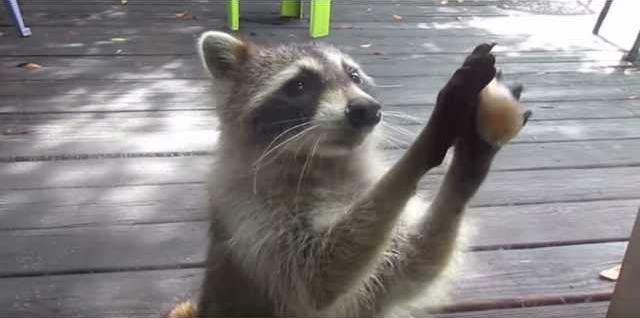
MANHATTAN — If it seems like raccoons have become more abundant in rural and urban areas of Kansas, it’s because, well, they probably are.
The Kansas Department of Wildlife and Parks conducts an annual survey it calls the Roadside Index that provides population estimates on various nuisance animals. KDWP’s report for 2023 indicates continued growth of raccoon populations in the state. Since 1980, when the survey was first taken, the number of raccoons reported has seemingly quadrupled.
“Raccoons are very intelligent, resourceful animals that often live around farmyards in hollow trees, holes created by other animals, brush piles, abandoned vehicles and farm machinery, and buildings,” said Kansas State University wildlife management specialist Drew Ricketts.
Yet, he adds, “while raccoons are fascinating animals, their broad diet, intelligence and willingness to live close to humans can lead to conflicts with people and pets – and the need for some form of control.”
Kansas is among the states that have a legal statute that allows for the removal of animals that are causing property damage, as long as they are not protected by the federal Endangered Species Act, Migratory Bird Treaty Act, or are a state-protected species.
Ricketts said raccoons are a furbearing animal in Kansas, so there is a season for their harvest (mid-November through late February, according to KDWP). Landowners, legal occupants or a Nuisance Wildlife Control Operator (NWCO) may use lethal means outside of the legal season as long as they use a legal method and do not try to utilize the animal that has been removed.
A recent concern in Kansas, according to Ricketts, is the use of pesticides to kill raccoons.
“There are no registered pesticides for raccoons, opossums, skunks, armadillos or any similar species in Kansas,” he said. “It is illegal to place fly bait, rodenticides or any other product with the intent to kill raccoons.”
“One of the main, common-sense reasons we have restrictions like this is because we need to be able to target the species that we are intending to control, and it is nearly impossible to put out a product that smells and tastes good enough for a raccoon to consume a lethal dose without also exposing non-target wildlife, pets, livestock and even people to the product.”
Ricketts added that in addition to being illegal, “it is unethical to place a poison in an indiscriminate way, especially where there are options available that are humane, relatively easy to implement, and are highly selective.”
He said raccoons are easy to trap using equipment that excludes non-target species and makes it easy to release them unharmed. Some methods, he said, are cat-proof and dog-proof.
“Municipalities often have restrictions…that require cage traps to be used, or may even prevent homeowners from conducting their own trapping within city limits, so always check local laws before beginning a wildlife control program,” Ricketts said.
Ricketts said homeowners can also discourage raccoons migrating to their property by not feeding pets free choice outdoors; removing bird or other wildlife feeders; and securing trash containers.
“Kansas residents experiencing raccoon damage have several options for receiving assistance with lethal control efforts,” Ricketts said. “Local trappers and hunters are often happy for the opportunity to harvest raccoons on new properties, especially during the Kansas furbearer season. There are also many NWCOs throughout the state who will provide wildlife damage control assistance for a fee.”
A list of NWCOs in Kansas is available online. Ricketts also is available to provide training to farmers and ranchers in effective control techniques and to loan control equipment. He can be reached at [email protected], or 785-532-1949.
More information also is available online from K-State Research and Extension’s wildlife management website.
